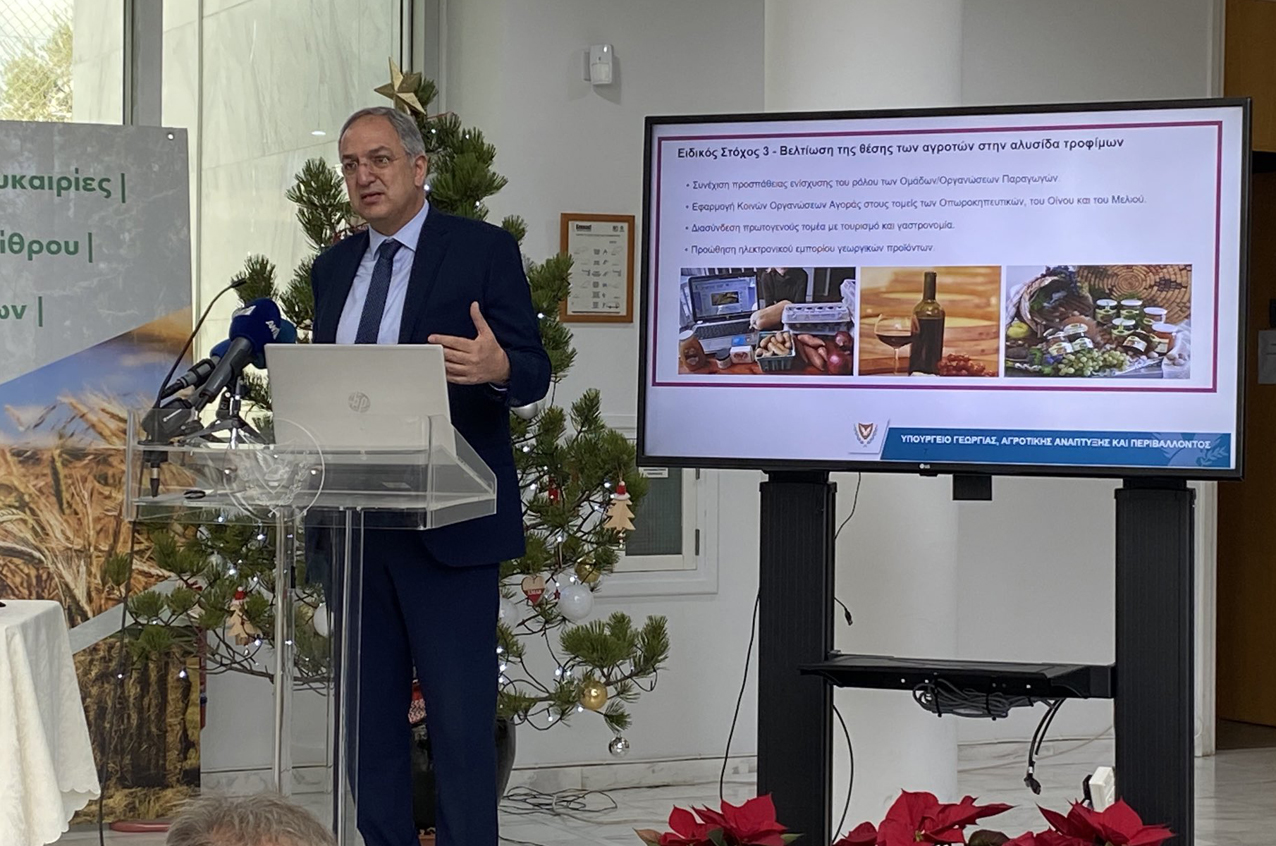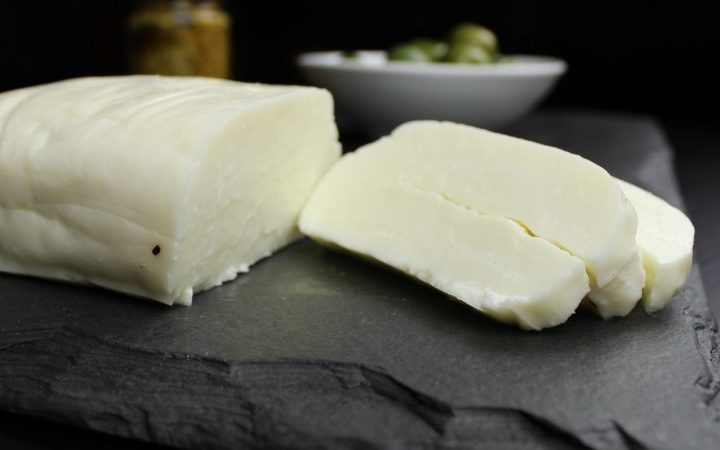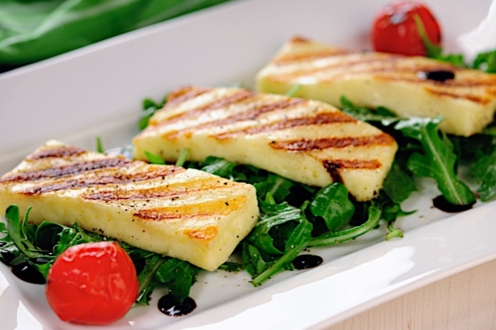Monday was a historic day for Cyprus’ traditional cheese as the island’s agriculture minister, Costas Kadis, confirmed that stakeholders reached a win-win agreement over how halloumi is made.
Speaking on CyBC radio Tuesday morning, Kadis said that a full agreement was reached late in the evening after a marathon meeting over the controversial topic of the PDO (Protected Designation of Origin) certified halloumi.
Kadis told CyBC that following a five-hour meeting with goat and sheep breeders and dairy producers a deal was reached, as all sides made serious concessions.
The minister explained that the new deal foresees that the thorny issue of the ratio of cow to goat and sheep milk will be resolved, with the ministry conceding to dairy producers’ demands to postpone the implementation of the milk ratio as in the original PDO file.
After the deal and for an initial transitional period, products may be labelled “halloumi” as long as they contain at least 10% goat and sheep milk, increased by 5% every year until the 50% level is reached in 2029.
Kadis said this will allow goat and sheep farmers to gradually increase their animal stock.
At present, the PDO file stipulates that halloumi should be made with a minimum 50% sheep and goat milk by 2024. Essentially, the industry will be given another five years to prepare.
Kadis expects that in exchange, big dairy producers will rush to register with the PDO certification system en masse, so that by the end of August the only halloumi available on supermarket shelves will be PDO-certified.
Furthermore, the minister said that authorities have made concessions on the format and packaging for halloumi, allowing producers to diverge from the requirements stipulated in the original PDO file, according to which halloumi can only be sold in folded blocks of 300 gr.
Sliced and burger-shaped
“Sliced halloumi (halloumi fries), large blocks of the cheese and burger-shaped halloumi will also be considered PDO halloumi,” said the minister.
As explained by an agriculture ministry source, criteria of minor importance such as the shape and size of the cheese, can be regulated at a national level.
As for the halloumi already produced that does not meet the PDO criteria, producers will be given the opportunity within a reasonable period of time to sell them in the market.
The same ministry source added that Cyprus authorities will be now turning to Brussels to request a five-year extension for the implementation of the file.
The source said that indications are positive. Until the end of the five-year grace period, the milk ratio will be dictated by decrees issued by the Agriculture Ministry.
Cheesemakers have welcomed the development pledging to give increases to producers and to buy all produced quantities of sheep’s and cow’s milk at a significantly increased price, agreed at the table with the ministry.
The Cyprus Dairy Producers’ chairman, George Petrou, told the Financial Mirror that cheese makers have pledged to continue working towards resolving the issue in favour of the island’s traditional cheese.










